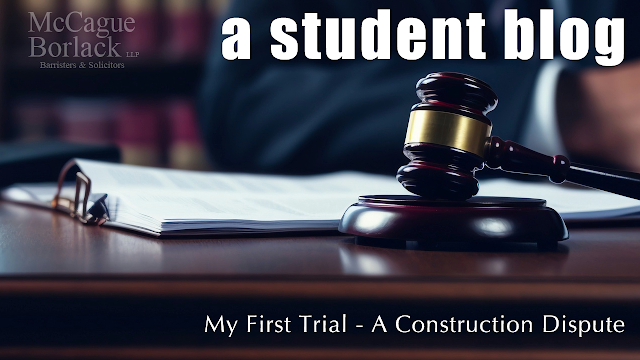The journey to becoming a lawyer can be a long one, with articling being one of the countless trains we have to take.
Hop aboard while I take you through the many stops you will make during your articling period.
First stop, PleadingsVille
Pleadings are the main documents in a lawsuit that the court requires the parties to file at the beginning of a case. These typically include a statement of claim and a statement of defence. As an articling student, I drafted pleadings and saw how a lawsuit begins. Whether I am drafting a claim for a plaintiff, or defending a claim, I am able to identify the key facts and issues to make the case.
Next stop, The Township of Affidavits
Lawyers will typically gather all the evidence in their client’s possession and compile it into an Affidavit of Documents to exchange it with the other party. When tasked with drafting an Affidavit of Documents, I start by reading the statement of claim and defence to get familiar with the case. Then I sort the documents into 3 categories, i) relevant, ii) privileged, and iii) not relevant. All the relevant documents are produced and included in the Affidavit under Schedule A. While all the privileged documents, such as communications between the lawyer and the client, go into Schedule B.
When it is challenging to identify the relevance of a particular document, I reach out to the assigning lawyer for clarification.
Next Stop, The City of Dreams
This is where all aspiring lawyers aim to go. No, not New York City, Courthouse City. Going to court is an essential part of the articling experience. While a majority of court appearances are now virtual, there are still some opportunities to attend court in person. Whether I am observing and diligently taking notes or making a submission, going to court is the most exciting part of my articling experience. I have been given many opportunities to sit in on discoveries, mediations, settlement conferences, and pre-trials. It’s always interesting to hear the opposing party’s submissions and watch how the case unfolds.
These are just a few of the many stops you will make during your articling period.
While articling can be a challenging journey to navigate, especially for new law school graduates, there are several conductors on this train to help make this transition as smooth as possible. Ashley, Student Director, is one of many people who ensure students have the best experience possible.
by Annie J.














